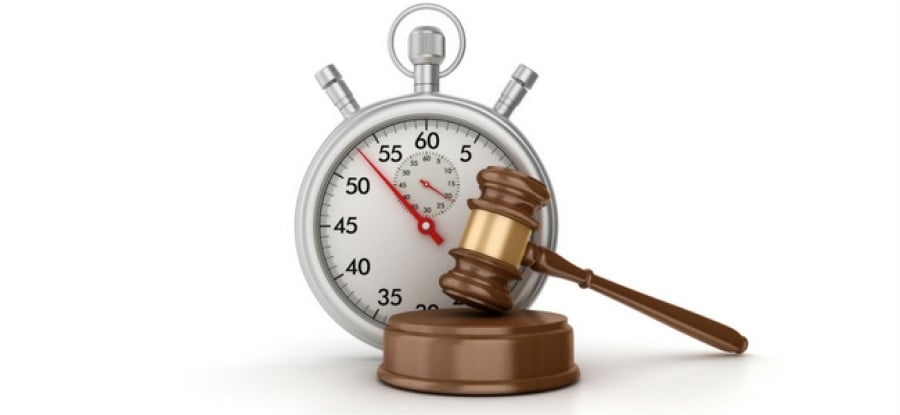Rules, scope and jurisdiction of the CAS Ad Hoc and Anti-Doping Divisions at the Olympic Games

In this two-part article, Despina Mavromati, Managing Counsel at Court of Arbitration for Sport (CAS), analyses the specific procedural rules of the CAS Anti-Doping Division (ADD), as the CAS Panels at the Rio Olympic Games interpreted them. The article also compares the ADD rules to the procedural rules of the (general) CAS Ad Hoc Division (AHD) and to the (permanent) CAS in Lausanne, Switzerland. Part one offers an introduction to the ADD and the AHD Rules and examines their general scope and the jurisdiction of both divisions. Part two analyses the structure of the CAS ad hoc offices and the conduct of the ad hoc proceedings, particularly in terms of evidence, applicable law and provisional measures.
This article is essential reading for any sports lawyer who represents or plans to represent clients in sports disputes before the CAS.
Introduction
The close of the Rio Olympic Games marks an extraordinary Olympic Games for the CAS having registered 28 procedures, a record number of cases, at the Games at during the competition.
The CAS has been adjudicating on a variety of disputes arising on the occasion of the Olympic Games (OG) through its CAS Ad Hoc Divisions (CAS AHD) since 1996 (the Atlanta OG). The CAS AHD has dealt with eligibility, qualification / disqualification matters, doping and other disciplinary issues, primarily as a second instance body.1The main particularity of the CAS AHD is that it provides athletes and federations with free access to justice within very short deadlines (generally within 24 hours from lodging the claim or in accordance with the competition schedule). The expediency of this process is imperative to provide certainty for aforementioned stakeholders.
The Rio Games, however, marked the first time in the history of CAS where the international sports tribunal was in charge of doping-related matters (arising out of the OG) as a first- instance authority, through its newly established CAS (ad hoc) CAS ADD. The International Council of Arbitration for Sport (ICAS), which is the supervising authority of CAS, adopted a new set of procedural rules, which are specific to anti-doping matters, the CAS Arbitration Rules applicable to the CAS Anti-Doping Division (CAS ADD Rules). It also selected the President, the Vice-President and the arbitrators for this division.2
The CAS ADD Rules were ratified in April 2016 in view of the Rio 2016 Olympic Games (the Rio Games). Unlike the substantive law provisions included in the International Olympic Committee Anti-Doping Rules (IOC ADR), the ADD Rules are of procedural nature.3 They follow the same structure as the CAS AHD Rules, which in turn were largely inspired by the CAS Code.4 Therefore, the latter can be used to interpret most of the procedural provisions of both the ADD and the AHD Rules. The creation of the first-instance CAS ADD5 was decided by the IOC in order to delegate to the CAS, as an independent judicial body, the adjudication of alleged anti-doping rule violations during the OG pursuant to Art. 59.2.4 Olympic Charter (OC) and Article 8.2.2 IOC Anti-Doping Rules for Rio 2016 (IOC ADR).6 This was part of the Olympic Agenda 2020 reforms7 and in accordance with the Resolution of the Fourth Olympic Summit with a view to making anti-doping testing procedures independent of sports organizations (like the IOC).8 It must be noted that the drafting of the CAS ADD Rules led to the amendment of specific provisions of the CAS AHD Rules as well as the IOC ADR in order to adapt to the creation of this new division.
Up until the 2016 Rio OG, the IOC had an internal adjudicating instance for first-instance doping disputes during the OG. The IOC practice was based on Rule 21 of the OC, according to which the IOC President can establish an ad hoc Disciplinary Commission (Ad Hoc DC) when necessary: an Ad Hoc DC is appointed prior to the OG in order to examine alleged anti-doping rule violations and make recommendations for action to the IOC Executive Board. The same procedure is also used for disciplinary matters other than doping (e.g. other issues related to the violation of the provisions of the OC).9 The Ad Hoc DCs are appointed prior to the OG and issue recommendations for the IOC Executive Board, which eventually renders the (first-instance) decision. Since the IOC has now delegated its adjudicating power with respect to anti-doping rule violations to the CAS ADD, it will only deal with disciplinary cases other than doping. These decisions can subsequently be appealed before the CAS AHD or the CAS in Lausanne.
The IOC Anti-Doping Rules
To continue reading or watching login or register here
Already a member? Sign in
Get access to all of the expert analysis and commentary at LawInSport including articles, webinars, conference videos and podcast transcripts. Find out more here.
- Tags: Anti-Doping | Court of Arbitration for Sport (CAS) | Court of Arbitration for Sport Ad Hoc Division (CAS AHD) | Dispute Resolution | Governance | Litigation | Olympic | Regulation
Related Articles
- The legal framework of the CAS Ad Hoc Division at the Rio Olympic Games
- Key CAS Ad Hoc Division cases handed down at the Olympic Games
- CAS Rio: The CAS ad hoc division in Rio closes with a total of 28 procedures registered
- Activities of the CAS Divisions at the Olympic Games Rio 2016

 Global Summit 2024
Global Summit 2024